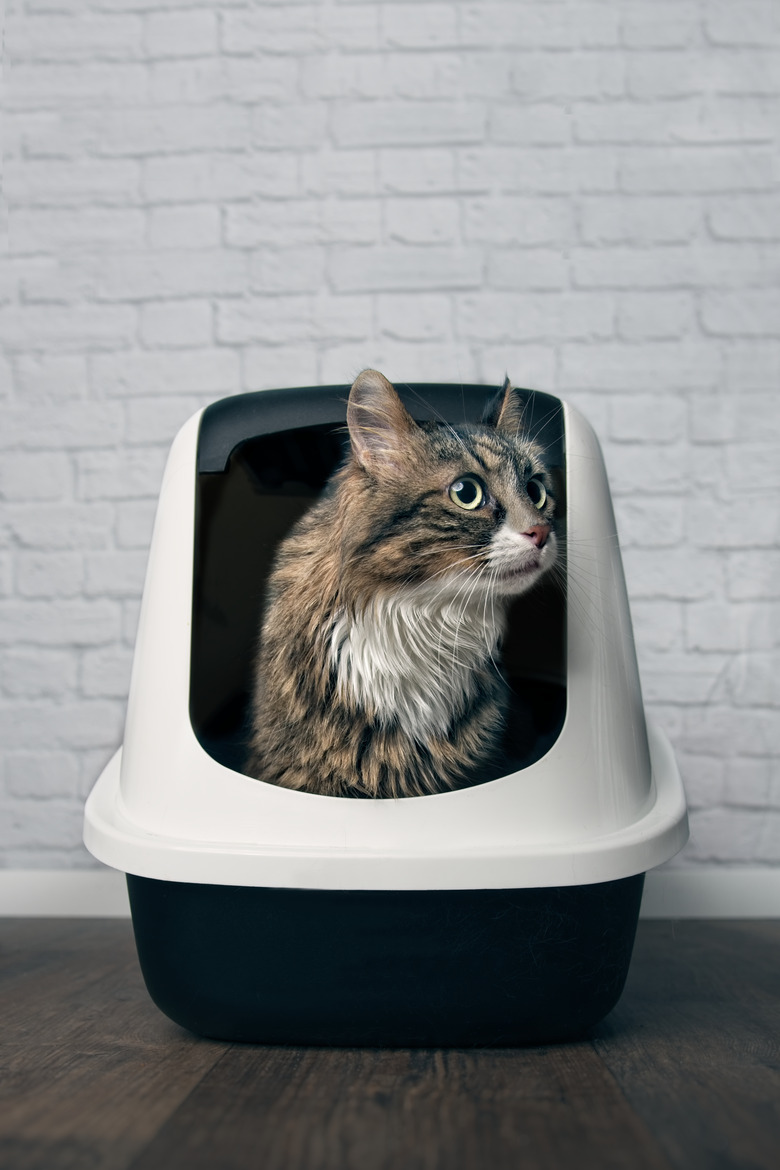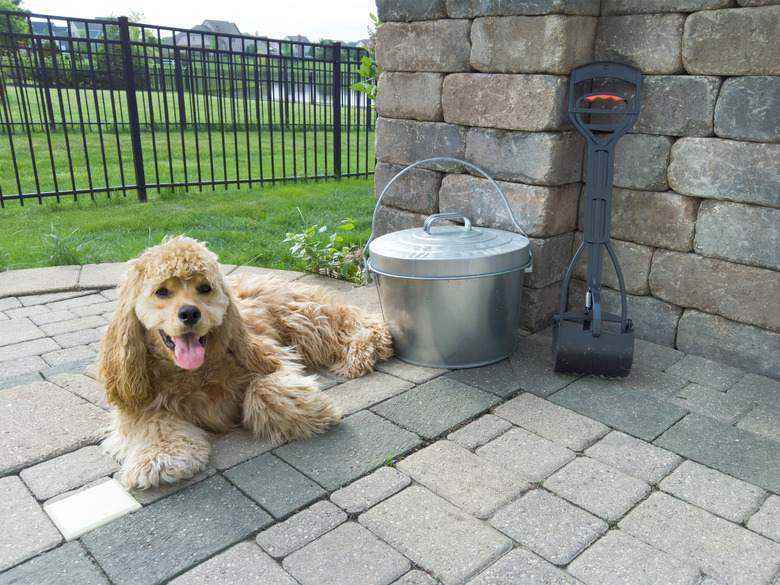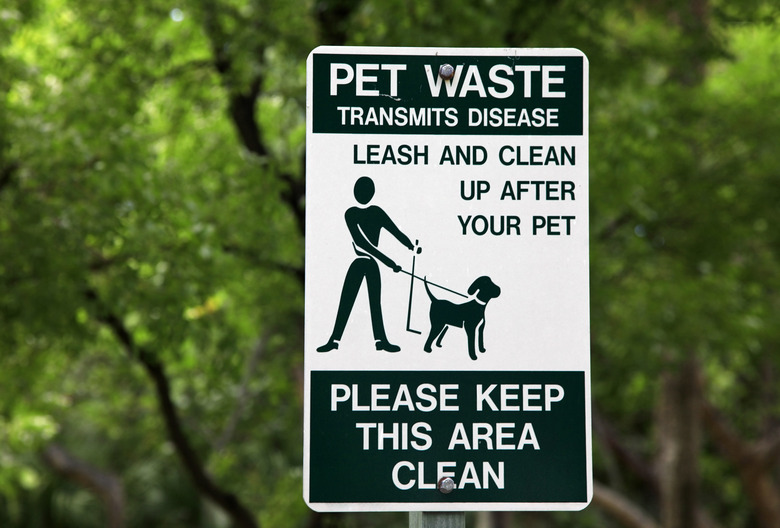Which Is Worse: Dog Poop Or Cat Poop?
It's a question as old as time: which are better, cats or dogs?
The answer, of course, will depend on who you're asking, and there are a wealth of pros and cons on either side of the argument. One detail many people probably don't consider is something most of us would rather not think about at all: their waste. Of course, they all go, but what's worse for human health, cat poop or dog poop?
It may not be an issue that keeps most people up at night, but it's certainly one worth considering, especially if you share a home with other animals, children, or anyone with a weakened immune system.
Possible diseases in cat poop
Possible diseases in cat poop
It's common knowledge that parasites like fleas and ticks, and fungal infections like ringworm, can be transmitted from animal to human via skin-to-skin contact. These pests are among the most common zoonotic diseases shared between the two, but not nearly the most alarming. Cat feces can also contain harmful bacteria, including salmonella and cryptosporidiosis, which can lead to diarrhea, vomiting, or infections within the digestive tracts of humans.
Additionally, cats can carry giardia, which the Mayo Clinic classifies as an intestinal infection, and yields similar side effects as those listed above in other animals. Teen Vogue also points out that urine and feces collected in litter boxes can result in an excessive build-up of ammonia, which can lead to respiratory issues over time when left unattended.
Perhaps the most harmful cat-to-human disease to watch out for, however, is called toxoplasmosis. Most often, toxoplasmosis is contracted through raw or undercooked meat, but people can pick it up through cat feces, where the parasite can live for months at a time. According to the Cornell Feline Health Center, pregnant women and immunosuppressed persons are the most vulnerable to toxoplasmosis, and it's strongly recommended that they do not handle cat waste to the reduce the risk of possible infection.
Possible diseases in dog poop
Possible diseases in dog poop
Like cats, dogs can carry cryptosporidiosis and giardia in their feces, but because most dogs eliminate outdoors, the spread of these diseases can be much more prevalent, especially if pet owners don't pick up after them. Most people probably don't have to worry too much about picking up giardia from their dog, as the chances of contamination are low. However, if you have additional pets in your home, the threat of giardia can present a problem for them. Camphlobactor can also be passed from dogs to human through fecal matter and can result in side effects including diarrhea, vomiting, and fever.
The same goes for hookworm and roundworm, both of which contaminate soil via dog droppings once the worm's eggs hatch into larvae. Walking barefoot in grass that's been defecated on by a dog carrying worms can result in the spread of disease thanks to their ability to burrow into the skin, or make their way into your intestinal tract through accidental ingestion. (Ew.) The latter commonly occurs when children get contaminated soil into their mouths, or when someone scooping their dog's poop doesn't wash their hands properly before touching their face or mouth.
Which is worse?
Which is worse?
When it comes to determining which animal's poop is the most toxic to humans, it seems that the answer depends on the person in question. All of these diseases can lead to unpleasant and even serious side effects, but some are more harmful than others. If you're pregnant, cat poop is the one you'll want to stay away from, as toxoplasmosis can affect not only your health, but the health of the fetus. The Center for Disease Control states that kittens and young cats are the most likely to spread the disease, and can shed millions of parasites nearly one month after becoming infected.
In the case of dog droppings, campylobacter can lead to life-threatening infections for anyone with a weakened immune system, according to Daily Dog Discoveries. If you have a home with multiple dogs that use the same yard, the spread of giardia may be more of a concern, as it's so easy transmissible between canines. The CDC states that giardia can live in soil for anywhere from one week to three months, depending on the temperature, which is why it's so important to keep your dogs vaccinated from a young age.
How to safely handle pet waste
How to safely handle pet waste
The best way to ensure the safest pick-up of pet poop is through prevention, namely, with vaccinations. If your dog or cat is in good health, it won't be possible for the spread of disease to reach your or your loved ones, so always take care to make annual visits with your pet's veterinarian and keep them up to date on all shots. One 2017 study states that in addition to veterinary care for your pets, proper scooping procedures and routine hygiene after handling animal waste may drastically reduce the spread of infection.
When giving your cat's litter box its routine deep clean, be sure to include the scooper and anything else that may directly touch any pet waste, which should be disinfected to prevent the spread of germs or possible diseases. When scooping your dog's poop, be sure to cover your hand with a pet waste bag completely when picking up, or use a pooper scooper or other device designed to keep you far away from your dog's droppings. Picking up after your pet is just part of the responsibility of raising them, so after your scoop, be sure to wash your hands to keep harmful bacteria at bay.
Always check with your veterinarian before changing your pet's diet, medication, or physical activity routines. This information is not a substitute for a vet's opinion.
References
- Cornell Feline Health Center: Zoonotic Disease: What Can I Catch From My Cat?
- Mayo Clinic: Giardia Infection
- Center for Disease Control and Prevention: Parasites — Toxoplasmosis
- Daily Dog Discoveries: Six Scary Dangers of Not Picking Up Dog Poop
- Teen Vogue: How Cat Poop Can Affect Your Health
- Center for Disease Control and Prevention: Giardia & Pets
- NCBI: Exposure to Animal Feces and Human Health: A Systematic Review and Proposed Research Priorities


